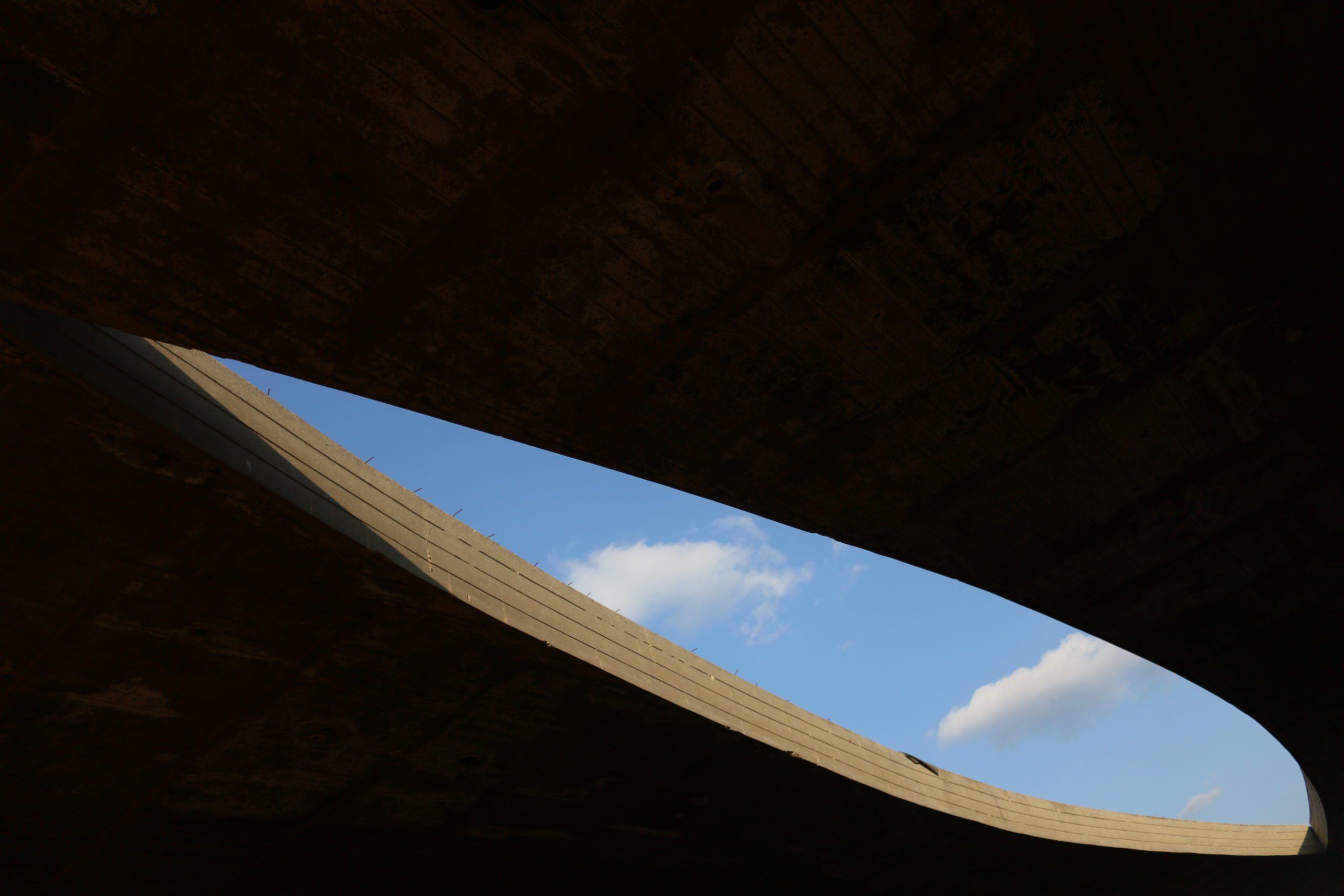
Fritzia Irizar en ‘Cycles of Collapsing Progress’, Trípoli, Líbano
Fritzia Irizar participa en la exposición colectiva ‘Cycles of Collapsing Progress’, organizada por el Beirut Museum of Art (BeMA) y STUDIOCUR/ART, en el Rashid Karami International Fair, en Trípoli, Líbano
Fritzia Irizar participates in the group exhibition ‘Cycles of Collapsing Progress’, organised by the Beirut Museum of Art (BeMA) and STUDIOCUR/ART, at the Rashid Karami International Fair, in Tripoli, Lebanon
22 SEP – 23 OCT 2018
Para más información, pinche aquí
For more information, click here
The notion of cyclical time, common to past civilizations, is now considered archaic, for according to Romanian intellectual, Mircea Eliade modern societies have a linear understanding of time. This contemporary understanding considers progress as the only possible outcome and therefore does not take into account repeated cycles of collapse.
The contemplation of the life and death of civilisations can be traced back to the medieval Tunisian-born historian Ibn Khaldoun, who suggested that historical cycles function in a loop, starting as Umran Badaoui (bedouin civilisation) evolving into Umran Hadari (urban civilisation) before collapsing. Recent studies by American historian, Joseph Tainter on the collapse of complex societies, like the ancient Egyptians, Greeks and Mayas, show there are several possible causes for their downfall, including natural disasters, wars, and epidemics. But one theory can be singled out. When a society becomes highly stratified, it is more likely to fall, as the cost of maintaining it is high. In the aftermath of the collapse of modernism or as Bruno Latour actually suggested we have never been modern, scientists affirm that since the anthropocene era, our future decline will be caused by an impending ecological disaster due to global warming. If -human beings, nature, and even history – functions cyclically, it is possible to think about the limits of progress and the cost that entails.
The exhibition will present 18 projects in total, including 8 commissioned artworks along 10 produced works by artists from Lebanon and Mexico. The meeting of the two scenes allowed the exchange of geographical perspectives on the theme. This project includes residencies in Beirut (BAR-Beirut Art Residency) and Guadalajara (PAOS GDL).
Karina El Helou (curator)
Participating artists:
Rashid Karami International Fair:
Edgardo Aragon, Ali Cherri, Jose Davila, Joana Hadjithomas & Khalil Joreige, Lamia Joreige, Fritzia Irizar, Jorge Mendez Blake, Damian Ortega, Marwan Rechmaoui, Gabriel Rico, Stéphanie Saadé, Roy Samaha, Jalal Toufic, Zad Moultaka
Citadel of Tripoli :
Rayyane Tabet, Haig Aivazian, Emmanuel Tovar, Pablo Davila

